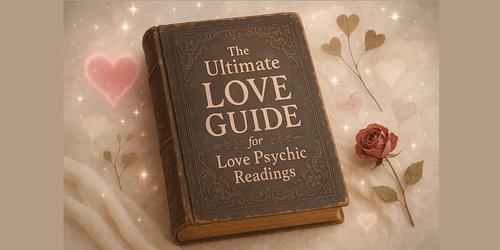
To pay for your reading on your telephone bill, simply call
Instantly message our featured psychics online via psychic messenger.
Click to start
Register now to start your reading online. PSYCHIC MESSENGER- Cheapest psychic service in the UK
- Our readers are available 24/7
- 100% confidential service
- In-depth, concise, personal readings
- Thousands of 5* reviews
Published 28/02/2024 • Updated 19/03/2024 by Joanne Jones
How Relationship With Parents Affects Relationships?
Our relationship with our parents during childhood can greatly influence how we interact and form relationships in adult life.
Numerous studies have explored the impact of parent-child relationships on various types of relationships, such as romantic relationships, adult friendships, and general social connections.
One key element that researchers have focused on is developing a secure attachment style.
Secure attachment is a healthy bond between a child and their primary caregiver, typically a parent. Individuals with positive family relationships tend to have a secure attachment style with more positive interactions and communication patterns in their current relationships compared to those with insecure attachment styles.
Research published in the Journal of Family Psychology has shown that individuals who had a secure attachment with their parents during childhood and spent quality time with family are likelier to have healthier and more satisfying intimate relationships in adulthood. They are more likely to have higher trust, empathy, and intimacy levels in their romantic relationships.
People with insecure attachment styles during childhood may struggle to form and maintain healthy relationships. This may have affected their psychological well-being, and they may have difficulty trusting others, fear intimacy, and exhibit negative emotions such as jealousy or insecurity. These negative relationship patterns can lead to dissatisfaction and instability in their adult relationships.
The quality of parent-child relationships can also influence the development of social skills and emotional regulation in adult life. Children who grew up in a nurturing and supportive environment are more likely to develop effective communication skills, empathy, and emotional intelligence. These qualities are crucial for building strong and fulfilling future relationships later in life.
How Relationship With Parents Affects Relationships?
There are many ways in which a relationship with parents affects relationships. Parental relationships can serve as role models for future relationships.
Children often learn about relationships through observing their parents' interactions. If children witness healthy and respectful communication, they are more likely to emulate those behaviours in their relationships, leading to healthier relationship patterns.
However, if a child grows up in an environment with parental conflict or unhealthy relationship dynamics and negative emotions, they may unknowingly repeat those patterns in their adult relationships.
Childhood experiences with parents can also impact one's psychological well-being and overall mental health. Negative experiences such as neglect, abuse, or inconsistent parenting can contribute to negative emotions of anxiety, low self-esteem, a lack of social skills and difficulty forming trusting connections in adulthood, leading to anxiety in relationships.
It is important to note that while childhood experiences can significantly influence adult relationships, they do not determine the outcome entirely. As adults, we can reflect on and work towards improving our relationship patterns.
Seeking therapy, engaging in self-reflection, and practising healthy communication skills can all contribute to healthier relationships regardless of our childhood experiences.
Understanding the Parent-Child Relationship Dynamics
Understanding the dynamics of the parent-child relationship and how a relationship with parents affects relationships in the future is a complex but essential aspect of growing up and family dynamics. This bond is rooted in love, trust, and responsibility.
Parents are typically responsible for nurturing, guiding, and providing for their children's physical and emotional needs. Children, in turn, rely on their parents for support, protection, and guidance as they grow and develop.
Exploring the Parent-Child Bond
The parent-child relationship evolves over time, passing through different stages, from the dependent infant years to the teenage struggle for independence.
Communication is key in navigating these dynamics, as open and honest dialogue helps parents and children bridge generational gaps and build stronger connections. Trust and mutual respect also play pivotal roles in fostering a healthy parent-child relationship.
While challenges and conflicts may arise as children assert their independence, understanding these dynamics can lead to a more harmonious and supportive family environment. The parent-child relationship is a lifelong journey that shapes a person's sense of self, values, and emotional well-being, making it a critical aspect of human development and family life.
The Impact of Early Relationships on Adult Connections
Early relationships profoundly impact adult connections and interpersonal dynamics throughout one's life. The attachments formed with caregivers during infancy and early childhood lay the foundation for how individuals relate to others in adulthood.
Secure and nurturing early family relationships with open communication styles and strong emotional connections tend to foster a sense of trust, emotional resilience, and healthy attachment styles. These individuals often approach adult relationships with a greater capacity for empathy, intimacy, and the ability to form secure and lasting bonds.
Negative or insecure early relationships can leave lasting emotional imprints. Individuals who experienced neglect, inconsistency, or childhood trauma in their early connections may struggle with trust issues, intimacy challenges, and difficulties with physical touch and forming healthy intimate connections in adulthood. These early family relationships can lead to patterns of behaviour that create difficult times in romantic partnerships and interactions with others throughout life.
Recognising and understanding the impact of early relationships within families can be crucial in breaking negative patterns and growing healthier adult connections.
How Relationship With Parents Affects Relationships?
The relationship with your parents profoundly shapes your interactions and connections with others throughout your life. Your early experiences with caregivers lay the foundation for how you perceive love, trust, and intimacy. The attachment style you developed as a child, whether secure, anxious, or avoidant, often plays a pivotal role in adult relationships.
Attachment Styles
One way a relationship with parents affects relationships is the kind of attachment you develop through life. The Attachment theory suggests that our early relationships with caregivers, primarily our parents, influence our attachment styles, shaping our adult relationships.
A secure attachment with parents typically leads to a more secure attachment style in adult relationships. These individuals tend to feel comfortable with emotional intimacy and trust, allowing them to form healthy, lasting bonds with partners.
In contrast, an insecure attachment style, such as anxious or avoidant, may result from inconsistent or neglectful caregiving during childhood. Adults with these attachment styles may struggle with trust, intimacy, and maintaining stable relationships, often echoing the emotional dynamics experienced by their parents. Read our guide about Attachment Styles.
The Parental Influence on Partner Selection
Another way how a relationship with parents affects relationships is through the partners we choose in adulthood.
We often gravitate towards individuals who mirror certain traits, behaviours, or even unresolved issues from our parental relationships. This can manifest in positive and negative behaviours. Someone with a loving and supportive parent may seek partners with similar qualities.
People with complex or tumultuous relationships with their parents may unconsciously be drawn to partners who replicate those challenges, hoping to resolve or understand them.
Unconscious Patterns: How We Choose Partners?
Unconscious patterns learned in childhood can greatly influence partner selection; this is one of the main ways the relationship with parents affects relationships overall.
People may recreate dynamics with their partners resembling those of their family of origin. For instance, if someone grew up with a controlling or distant parent, they might unconsciously choose a partner who exhibits similar traits, perpetuating the familiar but unhealthy pattern.
Relationship Expectations and Beliefs
Our upbringing also shapes our beliefs and expectations about relationships. Children absorb messages from their parents about what love, commitment, and partnership should look like.
These beliefs can influence the standards we set for our own relationships. For instance, someone raised in a family with open and respectful communication may have higher expectations for healthy communication in their adult relationships.
In contrast, those who witnessed toxic or unhealthy relationship dynamics may need to work consciously to redefine their expectations and beliefs to cultivate more positive connections.
What We Learn From Our Parents?
Our relationships with our parents serve as powerful teachers. There are various ways in which the relationship with parents affects relationships and our overall behavioural patterns.
A solid family structure can provide valuable lessons about love, trust, communication, and conflict resolution, which can influence how we approach adult relationships.
Recognising the impact of how relationships with parents affect relationships is the first step in breaking harmful patterns, fostering personal growth, and creating healthier, more fulfilling connections with others.
Therapy, counselling, or spiritual guidance from live psychic readers can be invaluable resources for individuals seeking to understand and address the influence of their family of origin on their adult relationships.
Love Readings
Love readings with Trusted Psychics UK offer a unique and insightful way to explore your attachment style, understand relationship dynamics, and uncover hidden insights about your love life. These skilled psychics can delve into the energies surrounding your current relationship, helping you clarify your attachment patterns and how they may influence your connections with others.
A love reading can provide valuable guidance and self-awareness if you want to change or understand your attachment type.
Through a phone psychic call or an instant Live Messenger chat, Trusted Psychics UK's love psychic experts offer a convenient and accessible means to seek advice and spiritual insights. Their expertise can help you overcome the complexities of your love life, providing information that may have been hidden from your conscious awareness.
To improve your relationships, gain a deeper understanding of your partner, or explore your own attachment style, Trusted Psychics UK's love readings can be a priceless resource on your journey to more fulfilling and harmonious connections.
FAQs
How Does Having a Good Relationship With Your Parents Affect You?
There are many ways in which the relationship with parents affects relationships and yourself as a person in general. Having a good relationship with your parents can significantly and positively impact your life.
A supportive and loving parental relationship can foster a strong sense of self-worth, self-esteem, and emotional security. It can influence your ability to form healthy and fulfilling relationships with others. It serves as a model for healthy communication, empathy, and conflict-resolution skills.
A good relationship with your parents can have a lasting impact on your self-confidence and your ability to navigate life's challenges. Having a supportive foundation makes you more likely to approach difficulties with resilience and a positive outlook.
A positive relationship with your parents can contribute significantly to your emotional, social, and psychological well-being, helping you lead a more balanced life.
Can a Bad Relationship With Parents Affect You?
Yes, a bad relationship with your parents can affect you in the long run. Most importantly, if you have a bad relationship with your parents, you need to know how the relationship with your parents will affect your future relationships, as it can have a significant impact.
Not only can it affect your relationships but also your emotional, psychological, and social well-being. Such negative relationships can lead to various adverse effects.
People who experience strained or abusive relationships with their parents may struggle with low self-esteem, feelings of inadequacy, and emotional distress. These early experiences can leave lasting scars, influencing their ability to form healthy attachments and maintain positive self-images.
How Parenting Styles Affect Adult Relationships?
Parenting styles can significantly influence adult relationships, as they lay the foundation for how individuals perceive and engage in interpersonal dynamics. Different parenting styles—authoritative, authoritarian, permissive, or neglectful—can shape various aspects of a child's well-being and in future adult relationships.
For example, individuals raised in authoritative parenting households with a balance of warmth and discipline tend to develop a secure attachment style. They are more likely to feel comfortable with emotional intimacy, trust, and effective communication.
Adults who have had authoritarian or neglectful parenting may carry forward insecure attachment styles or have difficulties with trust, communication, or emotional intimacy. They may struggle with assertiveness, boundaries, or self-esteem in their relationships.
Recognising parenting styles and how relationships within families affect relationships and behaviour patterns is essential for addressing any challenges or patterns that may need adjustment.
How Your Relationship With Your Father Affects Your Romantic Relationships?
Your relationship with your father can significantly impact your romantic relationships, often shaping your attachment style and influencing your expectations and behaviours in love.
People with a loving and supportive relationship with their fathers tend to have a greater sense of security and trust in romantic partnerships. They are more likely to feel comfortable with emotional intimacy and better equipped to navigate conflicts constructively.
Those who had strained or absent relationships with their fathers may develop an insecure type of attachment, avoidant attachment styles of behaviour or unresolved emotions that can manifest in their romantic relationships and daily lives.
Contact Trusted Psychics to understand how your relationships with your parents influence your connections with others and the impact family bonds can have.
How To Contact A Trusted Psychic
Phone a live Psychic 24 hours a day
View all our live phone psychic and tarot readers online.
View All Live readersMessage a live Psychic 24 hours a day:
View all our live messenger psychic and tarot readers online.
launch messengerRecent Articles From the Trusted Psychics Blog

Are Trusted Psychics the Key to Understanding Your Love Life?
Confused about love or repeating relationship patterns? Discover how psychic love readings help people gain clarity, emotional insight, and love guidance.

How Can a Psychic Love Reading Help Your Love Life?
Discover how accurate psychic love readings bring clarity, soulmate insights, and healing. Trusted Psychics are available 24/7 for guidance & love insights.

3 of Hearts in a Love Reading and Its Meaning
Discover the meaning of the 3 of Hearts in a love reading. Learn what this card reveals for relationships, soulmates, twin flames, emotional growth & breakups.

Psychic Love Readings: What They Reveal About Your Relationship
Discover with Trusted Psychics what psychic love readings are and what they reveal about your relationships, from new to existing relationships & ex-partners.

What Is a Psychic Love Reading? The Ultimate Love Guide
Explore our ultimate love guide on psychic love readings & how they can help you with finding your twin flame, soulmate, new love, & whether an ex will return.

The Ultimate Guide to Finding Your Soulmate Through Tarot
Here's the ultimate guide to finding your soulmate through Tarot. Find out what The Lovers, 2 of Cups & 4 of Wands Tarot cards mean for finding your soulmate.

